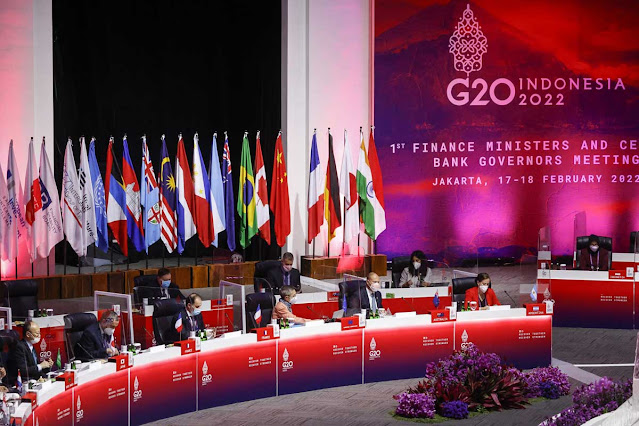The combination of trade wars, the pandemic, and geopolitical tensions has the potential to create new economic barriers, posing a significant threat to Western dominance on Earth. In recent years, several countries, including Indonesia, have been determined to break free from this grip. The dominance of the West cannot be discussed without mentioning three important instruments: the World Trade Organization (WTO), the International Monetary Fund (IMF), and the World Bank. These institutions were established in the aftermath of World War II and played a crucial role in building the hegemony of the United States (US) and its Western allies, including the European Union (EU) and the United Kingdom, for seven decades.
The Indonesian government is well aware of the challenges posed by the Western powers in the arena of international trade. In the past decade alone, Indonesia has been involved in five disputes with the US and the EU at the WTO, ranging from tobacco and paper exports to horticultural commodities. So far, Indonesia has won two cases, while the rest have been ruled in favor of the West. The most recent defeat came from the EU’s lawsuit regarding the ban on nickel ore exports. In late 2022, the Indonesian government filed an appeal with the WTO’s Dispute Settlement Body, and both parties are currently awaiting the formation of an appellate body to handle the case.
Apart from the WTO, the grip of the West extends through the IMF, which has previously played a prominent role in Indonesia during the collapse of the New Order regime. From October 1997 to April 1998, the Indonesian government repeatedly invited the IMF to agree to three Letters of Intent (LoI) to end the financial crisis. However, these LoIs failed to improve the situation. The exchange rate of the Indonesian rupiah plummeted to Rp13,513/USD by the end of January 1998, although it briefly recovered to Rp8,000/USD in early May 1999. Inflation soared to 77.63% in 1998, and riots broke out everywhere. Consequently, it is not surprising that Yandi Hermawandi’s study titled “Neoliberalism of the International Monetary Fund (IMF): A Case Study of Indonesia 1997-1998” (2019) considered the IMF’s intervention as accelerating Soeharto’s downfall. The IMF’s arrival only pushed the country’s finances deeper into crisis.
Similar to the IMF, the involvement of the World Bank during that period was also significant, especially in providing financial loans to handle the financial crisis. The power of capital and the partnerships formed through such cooperation became soft power tools for the West to maintain their grip on the global political and economic order.
The ban on nickel ore exports represents Indonesia’s latest challenge to Western superiority. The stakes are high, considering the importance of this policy in the downstream scenario for the mineral industry. By appealing to the WTO’s Dispute Settlement Body, the Indonesian government demonstrates its determination to dominate the electric vehicle battery industry. Regardless of the pros and cons surrounding this policy, the export ban on raw materials has reportedly contributed significantly to the country’s domestic revenue. According to data from the Indonesian Coordinating Ministry for Economic Affairs, the downstreaming of the nickel industry contributed 2.17% to the total non-oil and gas exports in 2022. Referring to data from the Indonesian Ministry of Industry, downstreaming in the mining and mineral sector boosted the export value of the industry to USD 36.4 billion as of October 2022, a 40% increase from 2021.

Comments
Post a Comment